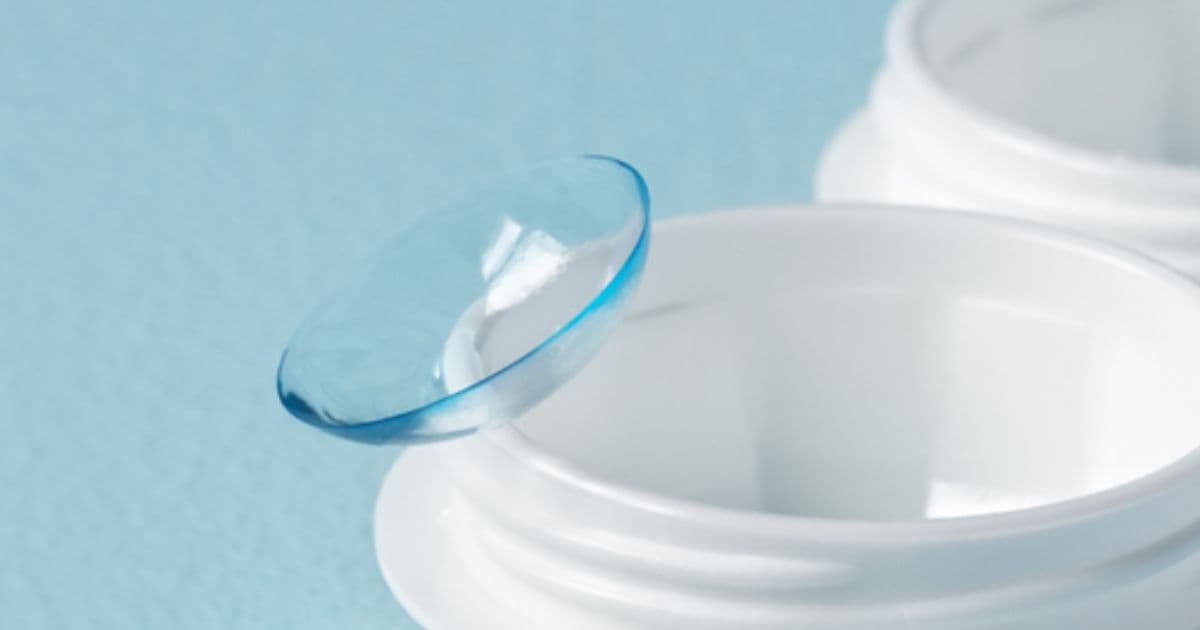What are hard lenses

If you hear terms like "gas permeable lenses", "GP lenses", "rigid gas permeable lenses", "RGP lenses" or "oxygen permeable lenses", they all refer to hard contact lenses.
Gas permeable contact lenses are rigid lenses made of durable plastics that allow oxygen to pass through the lens. These lenses are also called GP lenses, rigid gas permeable lenses, RGP lenses and oxygen permeable lenses.
The first types of rigid contact lenses were made of glass, and later, in 1936, a type of plastic called polymethylmethacrylate (PMMA) was discovered and used as a replacement for glass. However, the downside of PMMA was that it was impermeable to oxygen and various gases in general, whereas the eye needs a significant amount of oxygen.
In the meantime, gas-permeable lenses have been developed that include silicone, making them more flexible than hard PMMA lenses. Silicone allows oxygen to pass through the hard lens to keep the cornea healthy.
In fact, many modern hard lenses allow more oxygen to reach the cornea than most soft contact lenses. They're also easier to fit so they stay firmly in place while you're playing sports or doing other activities.
What are the benefits of GP lenses?
There are many advantages of wearing gas permeable contact lenses over soft contact lenses, but it's good to know that choosing the right lenses is strictly on the advice of your eye doctor. It is also good to know that choosing hard lenses does not exempt the use of care solutions, and for the clearest vision and the most comfortable wearing sensation, the proper use of hard contact lens solutions is recommended.
- Clearer vision: Hard lenses are made of rigid plastic so they keep their shape throughout the day - even when you blink, allowing you to see as clearly and accurately as possible.
- Durability: GP lenses don't break or chip easily and are therefore more durable and longer lasting than soft lenses.
- Resistance to protein and lipid deposits: Gas permeable lenses contain no water in their composition, so proteins and fat deposits from your tears will not stick to the lens.
- Affordability: Rigid lenses last up to a year, or even two, so there is no need to replace them, making them less expensive than soft lenses.
Who can benefit from GP lenses?
Although gas permeable lenses are not for everyone, many people choose to wear them to correct the following vision problems:
- Astigmatism: rigid lenses are prescribed when soft contact lenses do not provide clear enough vision.
- Presbyopia: hard lenses are available in a variety of bifocal and multifocal designs and provide increased visual acuity.
- Keratoconus: GP lenses provide the clearest vision possible to help correct severe vision difficulties.
- Corneal conditions: gas permeable lenses may be prescribed for a range of corneal distortions or fragile corneas.
- Myopia management: GP lenses are used for ortho-k treatments and are worn overnight to reshape the cornea in an attempt to stop or slow the progression of myopia.
What should I know as a wearer?
When it comes to "How we should wear our lenses properly", it is clear that we should follow both the instructions of our ophthalmologist and the instructions on the leaflets of the products we use. Regardless of the type of lens we use, it is necessary to have the appropriate solutions.
If you want your hard contact lenses to last as long as possible, then you should take care of them. This will reduce the risks of eye infections, scratches on the cornea and any complications caused by wearing the lenses.
- Daily cleaning of hard contact lenses is essential. It is also important to clean your contact lens case every day with the necessary solutions.
- Do not use tap water! Germs in tap water can stick to contact lenses. Instead, use cleaning solutions that are specially formulated for hard contact lenses, either cleaning, disinfecting or even multi-purpose solutions.
- Take precautions when swimming or bathing! Tap water can increase the risk of an eye infection, so you should avoid wearing contact lenses in these situations as much as possible. One solution would be to wear swimming goggles that prevent water from coming into contact with the lenses.
- Replace your contact lens cover regularly! Even though hard contact lenses can last for many years, the lens case should be replaced every few months to avoid contamination with germs that can cause eye infections.
- Avoid saliva! Never clean your contact lenses with saliva. It contains bacteria that can damage your eyes.
- Clean your hands thoroughly every time you touch your contact lenses. Wash them with soap before putting on or taking out your contact lenses.
- Do not sleep with contact lenses! This can increase your risk of getting an eye infection.
So, hard contact lenses have many benefits and are indicated for many eye health problems, but even so, they should not be bought and worn without your eye doctor's advice! Also, for more comfortable wear, long-lasting lens wear and the clearest vision, it is recommended to use the appropriate hard contact lens solutions.
